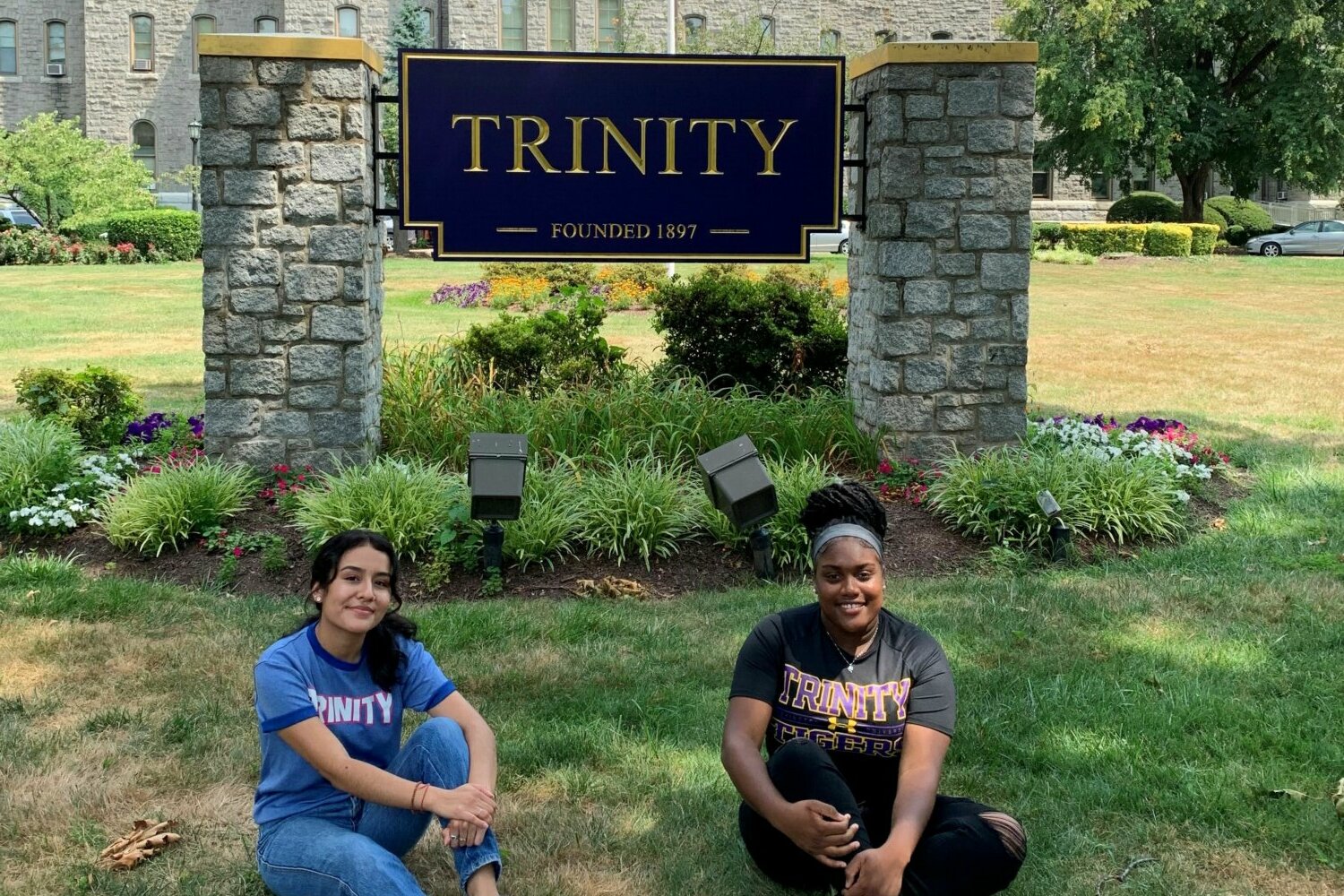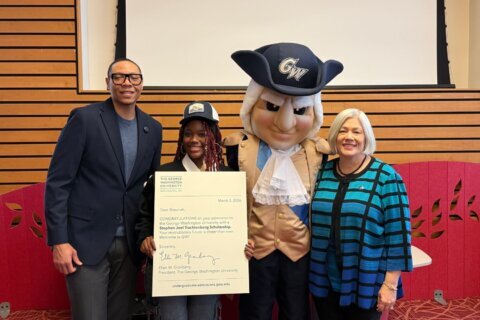
Trinity Washington University announced that it has paid off $2.3 million in balances from over 500 undergraduate students of the university, in part using funds from the American Rescue Plan.
Trinity President Pat McGuire announced Wednesday that $500,000 in funds from the American Rescue Plan would be added to the $1.8 million the university had already committed to paying down student balances, for a total of $2.3 million for 535 students. The average payment was $4,299 per student.
“This is absolutely the right thing to do for our students,” McGuire said in a statement. “Trinity students will start the Fall 2021 semester with a fresh balance sheet on their Trinity accounts! Students accumulated balances during the pandemic, from March 2020 through May 2021. Many of our students lost their jobs at restaurants and other service locations, and others were also the primary financial support for their families, making it hard to pay their tuition bills.”
The American Rescue Plan contains a provision that allows universities to use the funds to pay down student debt that was accrued during the course of the pandemic.
“It really is big when most of our students — the median family income here at Trinity is just $25,000 a year. Imagine median means that more than half of our students are with families whose whose income is less than $25,000. That’s almost impossible for many of us to think about,” McGuire told WTOP.
McGuire said she would like to see Congress to acknowledge the benefits of the American Rescue Plan’s college debt payments and use it as fuel to increase the Federal Pell Grant — which provides around $6,000 in aid for students with financial needs. McGuire would like to see that number double.
“We are asking Congress to raise that to $12- to $13,000. Pell has not kept pace with the growth in college expenses at all,” she said. “But not only for private colleges, but even more so for public institutions where tuition rates have gone up dramatically, because the states have stopped investing in higher ed.”
Trinity is a private university located in Northeast D.C. It is designated both a predominantly Black institution and a Hispanic serving institution.
McGuire said helping students of color avoid becoming weighed down with college debt was an effective way to help racial disparities in the country.
“We believe that widening pipelines for our graduates to enter professions where persons of color are under-represented is one of the strongest contributions Trinity can make to improving the climate for racial equity more broadly,” she said.
She added: “Black women carry the highest student debt burden in the country, and debt loads often inhibit their ability to complete degrees and become successful in their chosen professions. Reducing student debt burdens hastens degree completion and supports early career success, which ensures long-term growth and professional achievement.”
Ivanna Sawyer, a Trinity student, told WTOP she felt the university’s decision to wipe away student’s balance was a “very powerful thing to do.”
“I owe $3,000 and some change, and it has to be paid before I graduate — I can’t walk across the stage without my tuition balance being paid,” Sawyer said. “So it took a lot of stress off my shoulders. I don’t have to worry about that — I have a clean slate.”
- Sign up for WTOP alerts
- Sign up for WTOP’s coronavirus email newsletter
- Latest vaccination numbers in DC, Maryland and Virginia
- Montgomery Co. poised to reinstate indoor mask mandate
- FAQ: What CDC’s latest guidelines mean for DC region
Looking for more information? D.C., Maryland and Virginia are each releasing more data every day. Visit their official sites here: Virginia | Maryland | D.C.








